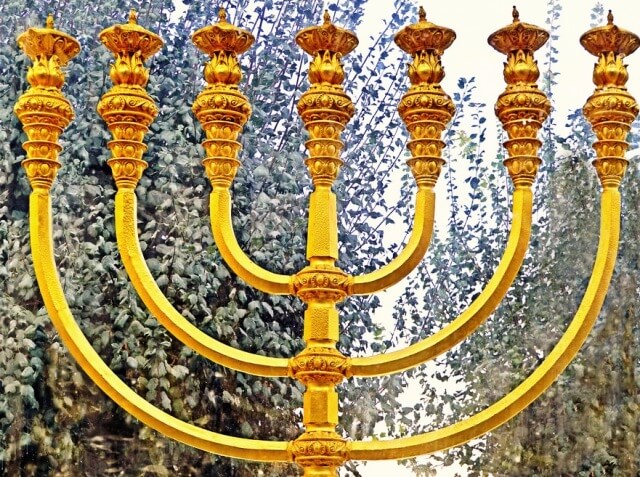Why does the Torah use this unusual phrase, “to raise up the flame”? Why not say simply “to kindle the flame”?
Proper Oil and Wicks
The Chachamim explained that this phrase indicates that the lights of the Menorah must burn easily and naturally, necessitating that only the finest oil and wicks be used. The oil must be pure, produced from types of oil that are easily absorbed, and the wicks must be made from a material that burns smoothly. With such high quality oil and wicks, the flame will “raise itself up” and will not need to be fiddled with.
For Shabbat lights, the Chachamim similarly required that the oil come from a substance that is absorbed easily, and the wicks be made from a material that burns smoothly. ‘Those wicks and oils that the Chachamim disqualified from use on Shabbat may also not be used in the Temple’ (Shabbat 21a).
Elevating Body and Soul
Rav Kook explained that there is a deeper significance to this rule. The goal of Shabbat is to perfect the individual, and the requirement for easily lit wicks and oil contains an important lesson about the path to spiritual growth.
If the body is overwhelmingly drawn toward physical pleasures, the intellect will not succeed in guiding it. One may become skilled in some craft, or gain proficiency in certain areas of wisdom, but wisdom will not reside in the heart. The overriding attraction to material pursuits will interfere with the illumination of the intellect.

Our body is like a wick. It must be refined so that it does not resist the light, but rather works together with the soul. Only then it will be illuminated easily and evenly. This is the essence of Shabbat: a day set aside for harmonious living, so that we may naturally grow in holiness and true service of God.
The oil is a metaphor for the human intellect. The mind also needs guidance; not every intellectual pursuit leads to ethical and spiritual growth. Cases abound of brilliant individuals who led amoral, even corrupt lives. Just as the oil of the Menorah must be of a type that is readily absorbed by the wick, so too, we should immerse ourselves in a wisdom which provides practical guidance toward proper living. Such is the wisdom of Am Yisrael — the Torah.
Lights of the Individual and the Nation
Shabbat day promotes the spiritual growth of the individual. But what about the spiritual growth of the nation? What if the nation seeks to amass wealth and power, regardless of any injustices perpetrated along the way? Unfortunately, this is a common phenomenon: the individual aspires to justice and goodness, while his country ruthlessly pursues its objectives.
The heritage of the Jewish people, however, is different. Our national aspirations are at one with our individual aspirations. Both are rooted in God’s law from Har Sinai. Both the individual and the nation pursue the same goals of justice and kindness. This is the significance of the association made between the Shabbat lights and the Beit Hamikdash Menorah, connecting the aspirations of the individual and the nation. Both the Shabbat and Beit Hamikdash lights require oil and wicks that burn smoothly and easily. The Torah of the nation, like that of the individual, must guide its actions effectively, and not be limited to abstract philosophical inquiry.
Raising Itself Up
The Chachamim further explained that flame needs to be constant, a light that “raises itself up.” What does this mean? Our impetus for seeking justice and good should be based on intrinsic, natural motives. This is accomplished by purifying the body through the sanctity of practical mitzvot, and the mind through the light of Torah study. Then we do not require artificial assistance to avoid evil. Our enlightened conscience will naturally lead us to the proper path.
(Sapphire from the Land of Israel. Adapted from Ein Eyah vol. III, p. 57 on Shabbat 21a by Rav Chanan Morrison.)


No comments:
Post a Comment